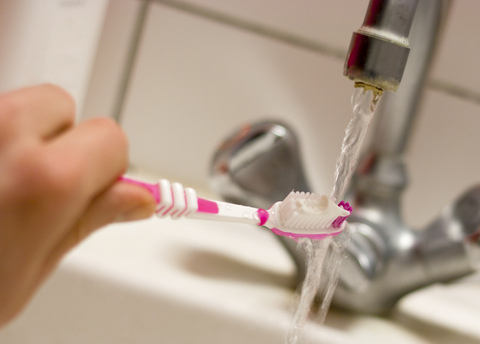Why do wisdom teeth need to be removed?
October 21st, 2014

Dr. David Barney and our team at Barney Family Dental get this question a lot. Wisdom teeth are the last teeth to come in, once young people get their adult teeth. Because they are the last teeth to break through the gums, they are often called the third molars. There are four wisdom teeth: two on each side of the top and bottom of the mouth.
There is no hard-and-fast rule that says everyone must have the wisdom teeth removed. There are certain situations in which they either cause problems directly, or create a situation where there is a greater likelihood problems will arise eventually.
Impacted wisdom teeth
If Dr. David Barney and our team say you have a soft tissue impaction, it means your wisdom tooth is covered by gum tissue that is preventing it from erupting — most likely because your mouth is too small to provide the tooth with the room it needs to emerge.
The term “partial bony impaction” means that gum tissue is covering the wisdom tooth, but part of the jaw bone is also covering it, in which case there is no room in your mouth for the tooth to erupt. The opposite end of this spectrum is a complete bony impaction, where the wisdom tooth is completely covered by gum tissue and the jawbone, which prevent it from ever erupting.
The importance of removing impacted wisdom teeth
Dentists often want to remove impacted wisdom teeth because of the likelihood that they will cause problems, or because a problem already exists. One such problem is pericoronitis, an acute abscess that affects partially impacted wisdom teeth. Food, bacteria, and other mouth debris can become lodged under the gum flap that covers the wisdom tooth, which prevents it from erupting. Pericoronitis symptoms include pain, swelling, and the presence of an abscess.
Regular dental checkups will enable your dentist to keep an eye on your wisdom teeth, especially if they have some type of impaction. Dr. David Barney and our team at Barney Family Dental typically recommend removal of impacted wisdom teeth because of the likelihood that severe infections such as pericoronitis will develop.
If you have any questions about wisdom teeth, or if you would like to schedule an appointment with Dr. David Barney, please give us a call at our convenient Beaverton, OR office!




 Website Powered by Sesame 24-7™
Website Powered by Sesame 24-7™